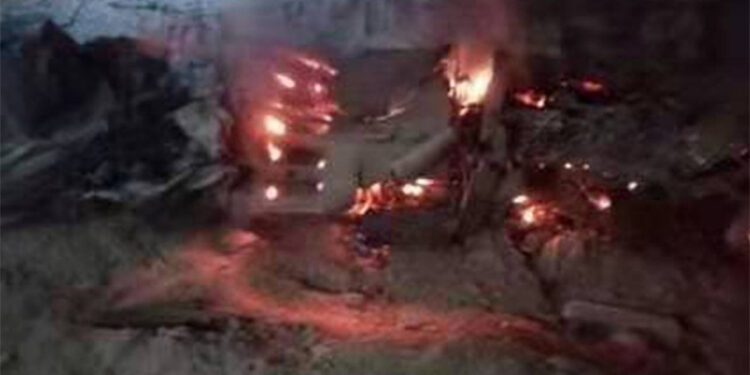BEIJING: After an Indian supersonic missile was allegedly accidentally fired into Pakistani territory last week, Pakistan demanded a joint probe, as Pakistan said it doubts India’s internal inquiry may not answer its questions over its capabilities to handle such weapons properly.
India’s other neighbouring countries including China should also be concerned about its lack of effective security protocols or technical safeguards, as this could potentially lead to unexpected consequences under complex situations, Global Times reported quoting analysts.
Pakistan’s foreign office said in a statement on Saturday that this serious matter cannot be addressed with the simplistic explanation proffered by the Indian authorities, and Pakistan demands a joint probe to accurately establish the facts surrounding the incident.
The Pakistani demand comes after India said on Friday it had accidentally fired the missile into Pakistan on Wednesday because of a “technical malfunction” during routine maintenance, and it would hold an internal inquiry.
No casualties were caused by the accident, reports from both countries said.
Pakistan’s foreign office also listed a set of questions and issues, asking the Indian authorities to explain the measures and procedures in place to prevent accidental missile launches, and if the missile was indeed handled by its armed forces or some rogue elements given the profound “level of incompetence.
“The grave nature of the incident raises several fundamental questions regarding security protocols and technical safeguards against accidental or unauthorized launch of missiles in a nuclearized environment,” Pakistan’s foreign office said.
A Pakistani defense analyst familiar with the matter told the Global Times on condition of anonymity that the incident has inherent risks, and it could have led to retaliation and escalation.
The Pakistani forces exercised restraint in the incident after thoroughly evaluating the situation while taking into account a number of factors, the analyst said, noting that restraint may not be the case every time.
If the incident turns out to be indeed an accident, it is very worrisome in terms of India’s safety mechanisms that are in place for launching a missile. Most worrisome is that India did not inform Pakistan immediately after firing, even if accidental, and only confirmed two days later. This aspect raises concerns about irresponsible behavior, lack of professionalism in Indian armed forces and command and control of strategic weapons. It shows India is not capable to be entrusted with such weapons in name of regional and global peace, the analyst said.
This concern should apply not only to Pakistan, but all countries neighboring India. What if an Indian missile accidentally landed close to the China-India Line of Actual Control? So it is a clear and persistent risk for all countries in the region, the analyst said.
China and India just concluded the 15th round of commander level meeting on Friday, as the two sides reached consensus on agreeing to maintain dialogue via military and diplomatic channels to reach a mutually acceptable resolution to the remaining issues at the earliest time, continuing the positive atmosphere since the 14th round of talks.
But an unintentional accident caused by India’s incapability to handle its weapons could seriously complicate the situation, experts said.
Despite India’s claims saying the incident is accidental, the Pakistani analyst said it could well be intentional, and India’s motive could be to test the response options of Pakistan’s defense systems which could be the reason probably that Pakistan side intentionally kept some aspects of the incident vague.
It takes a lot to fire a missile, including the aligning of the missile with fire control system, feeding it with certain parameters and more, so an accidental firing is supposed to be difficult, the analyst said. Accordingly there are a lot of queries which India needs to respond to in order to clear its record.













